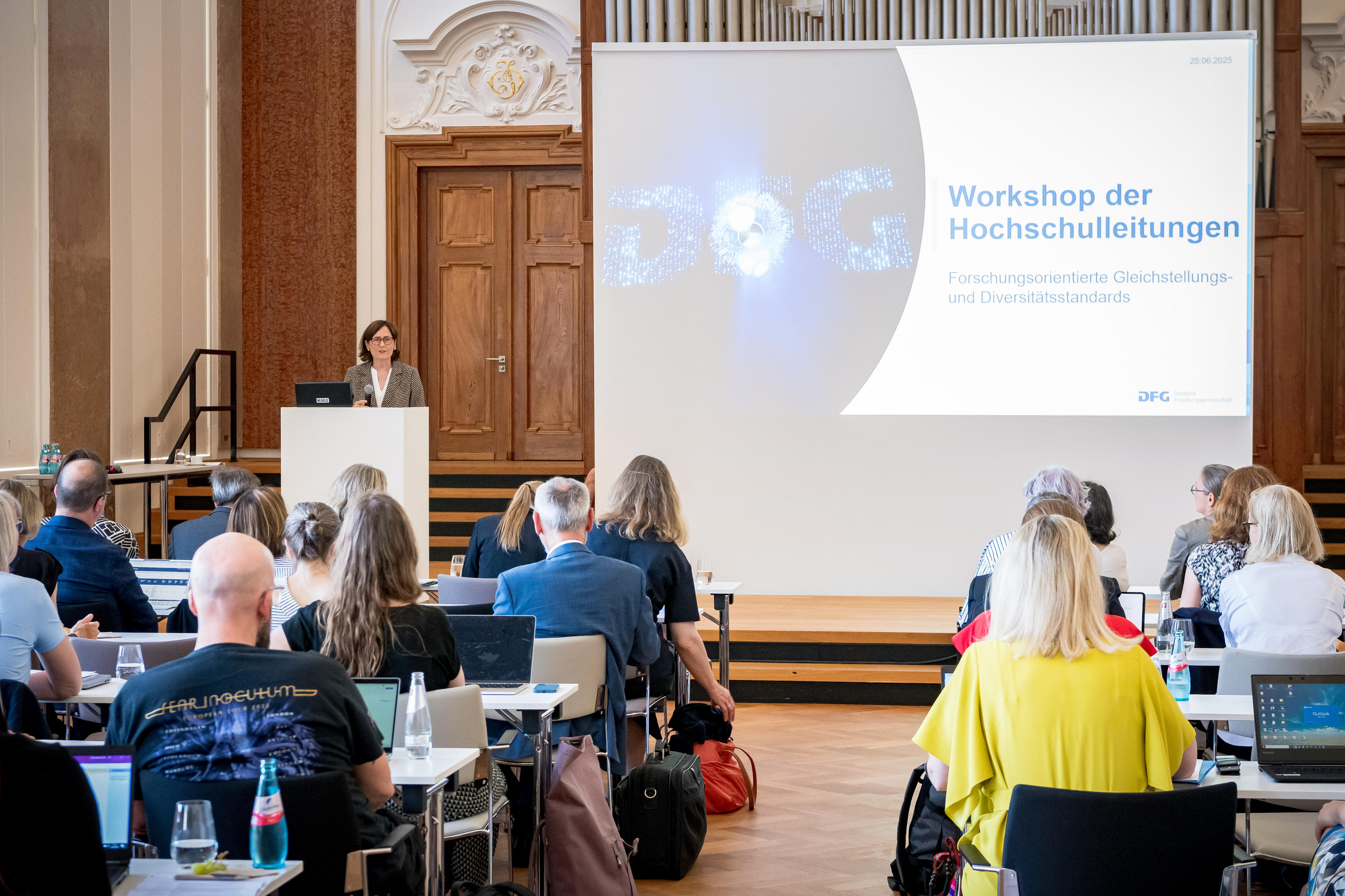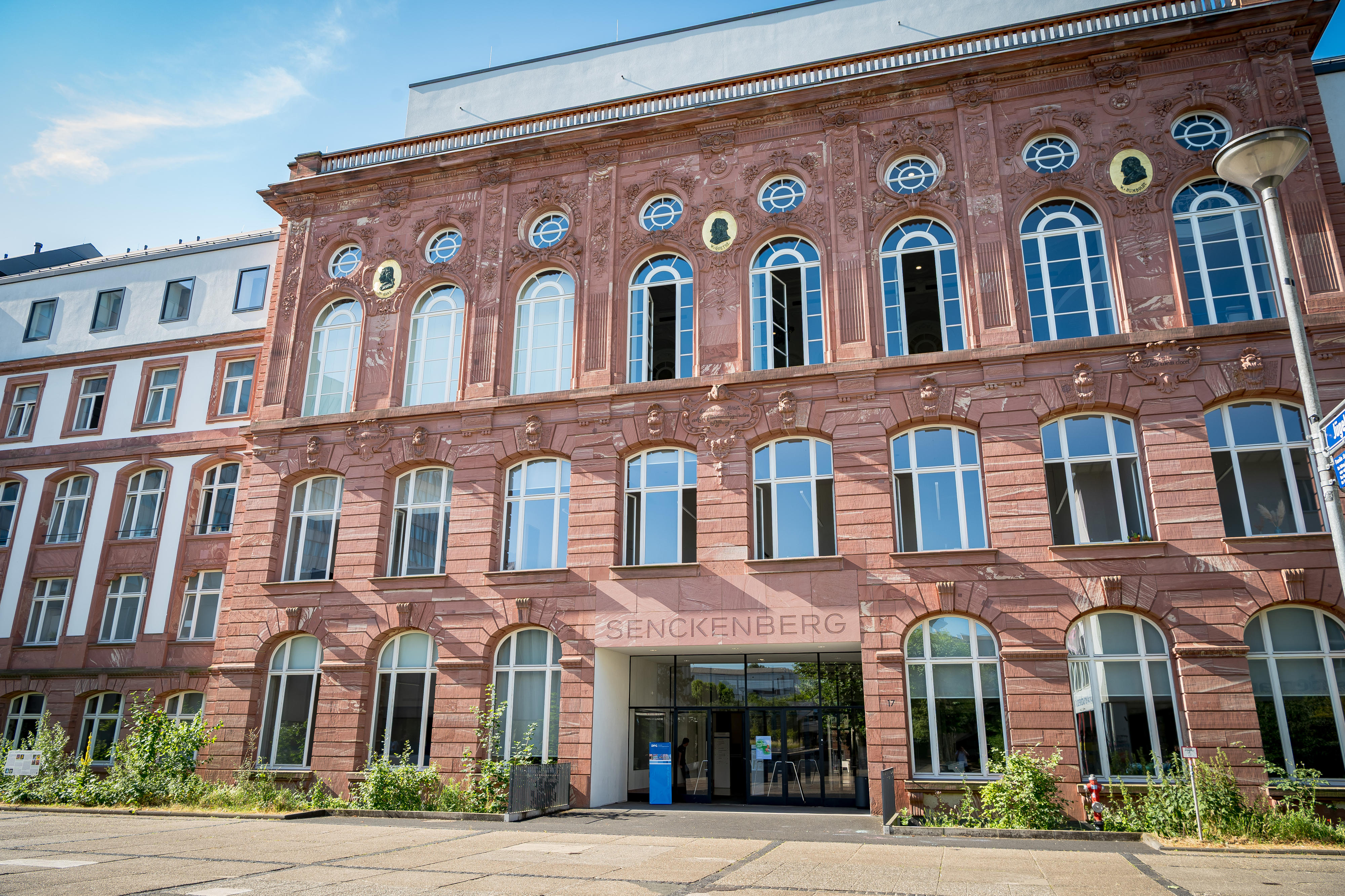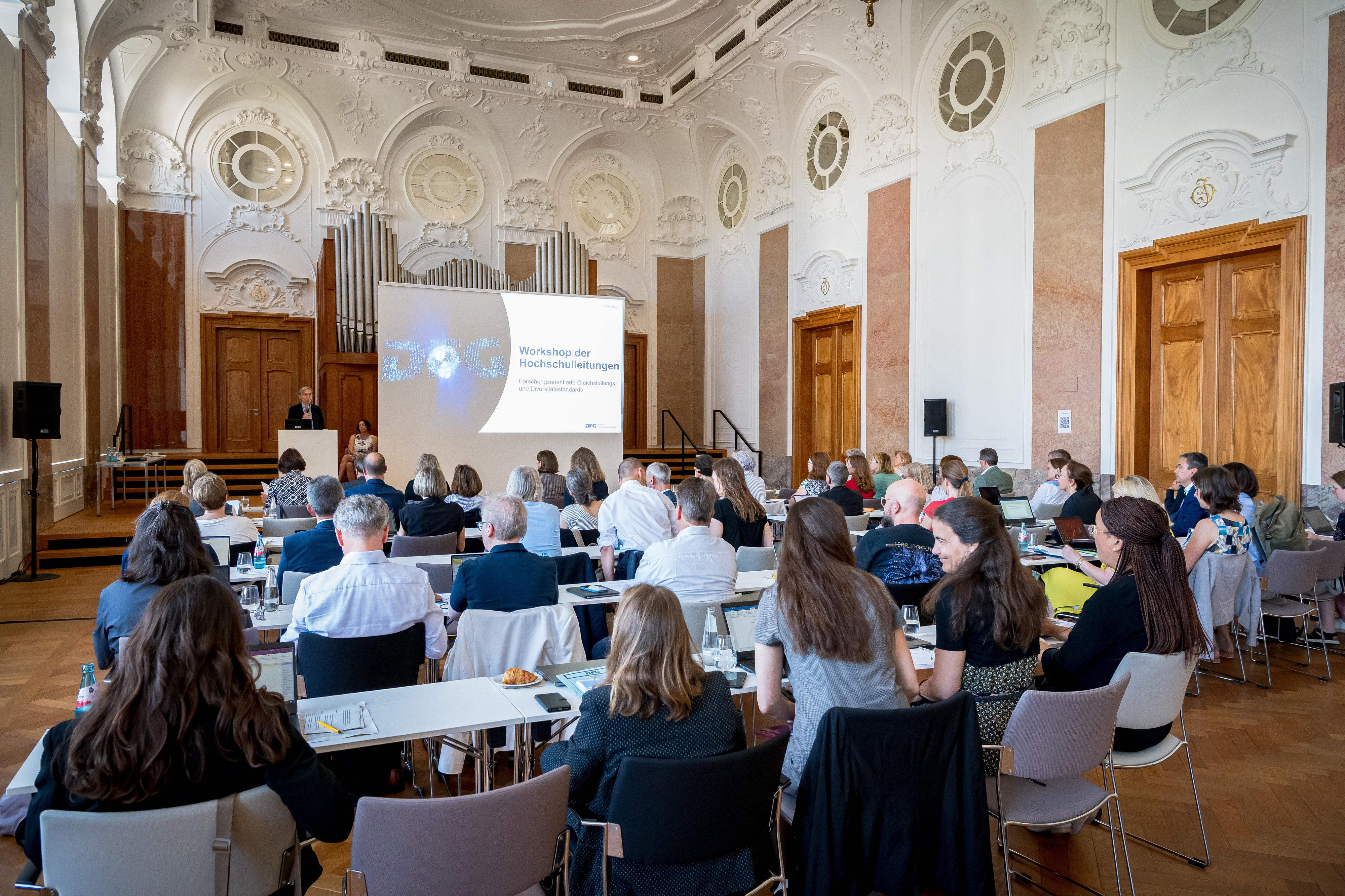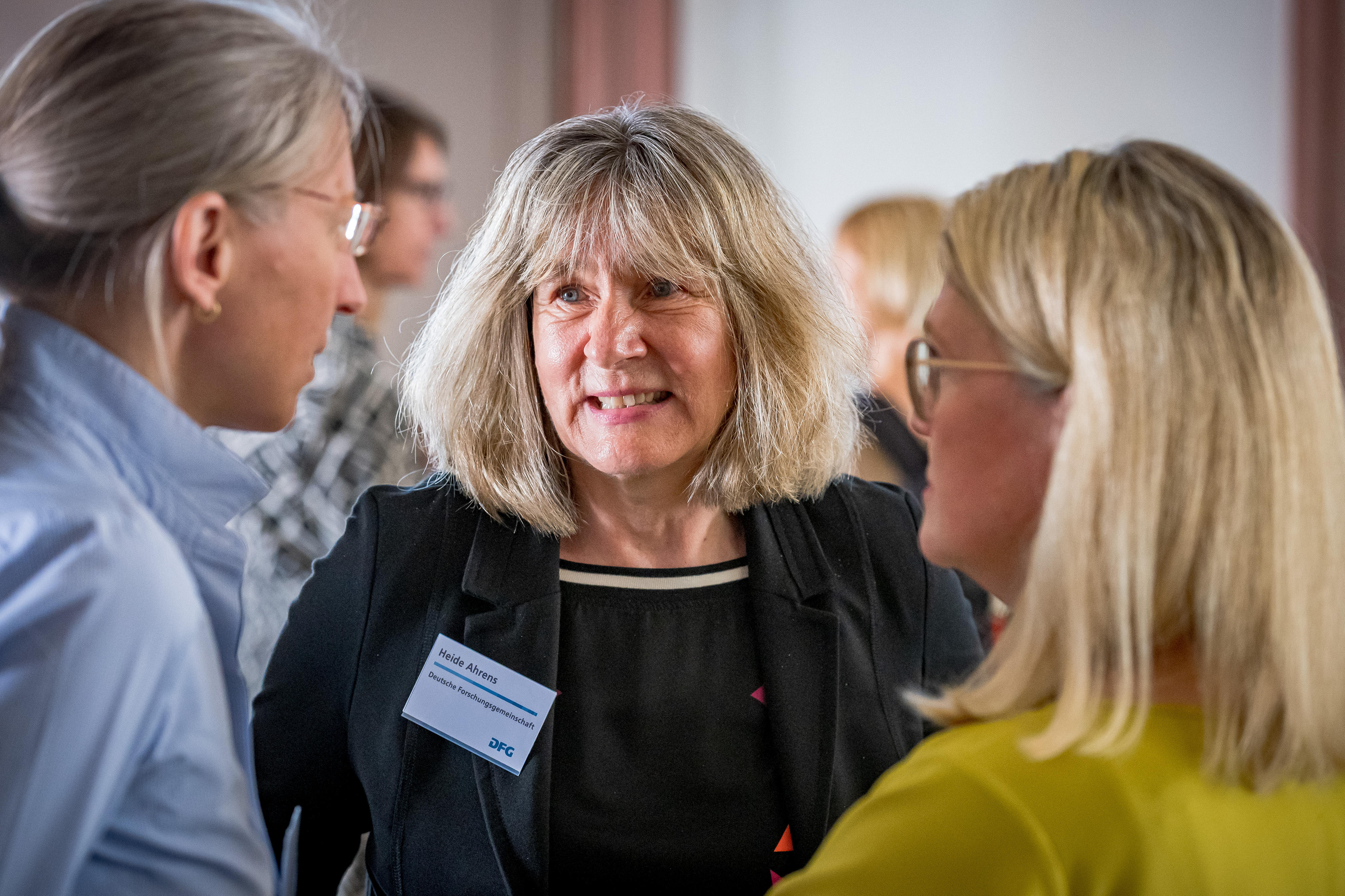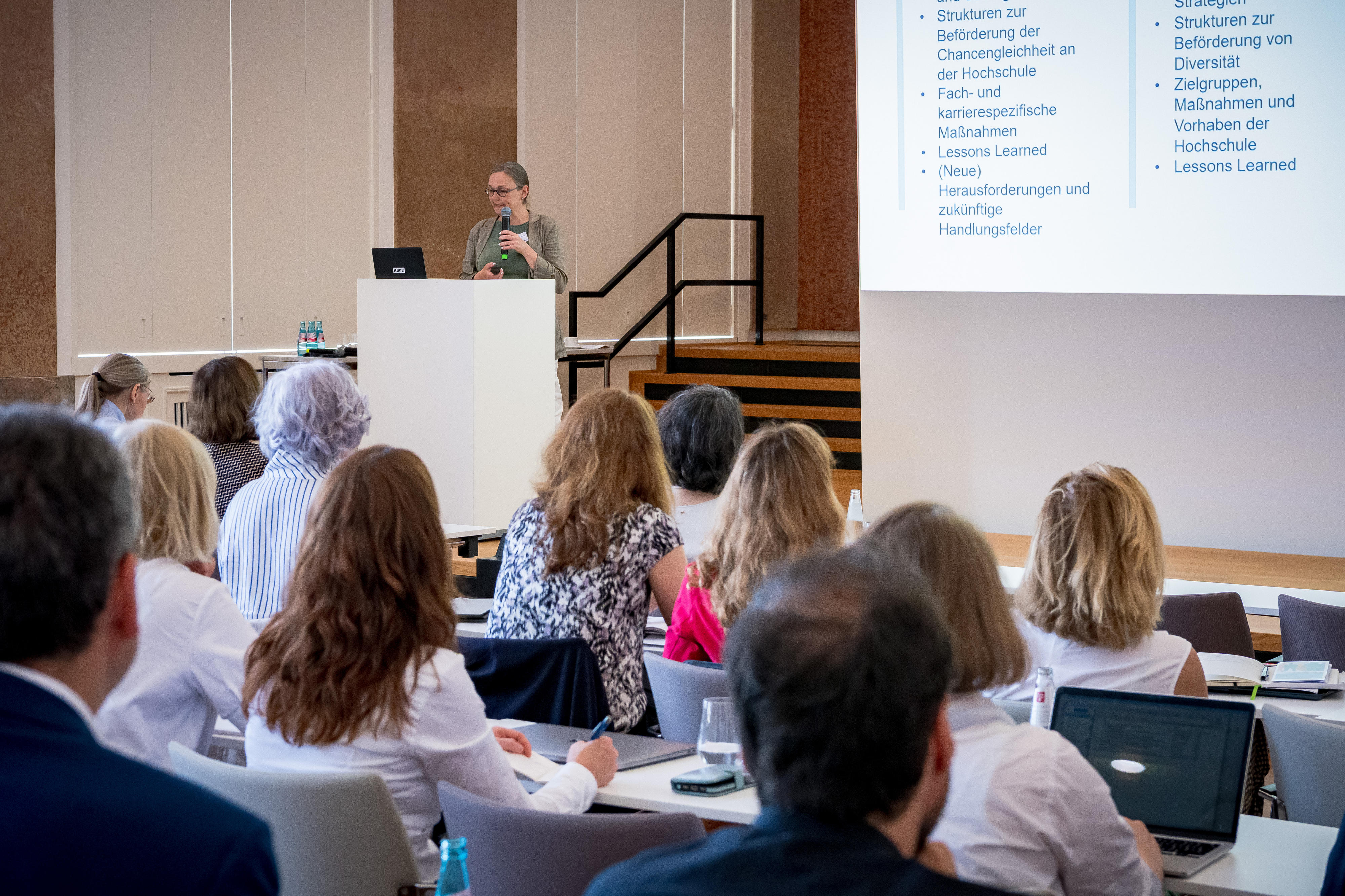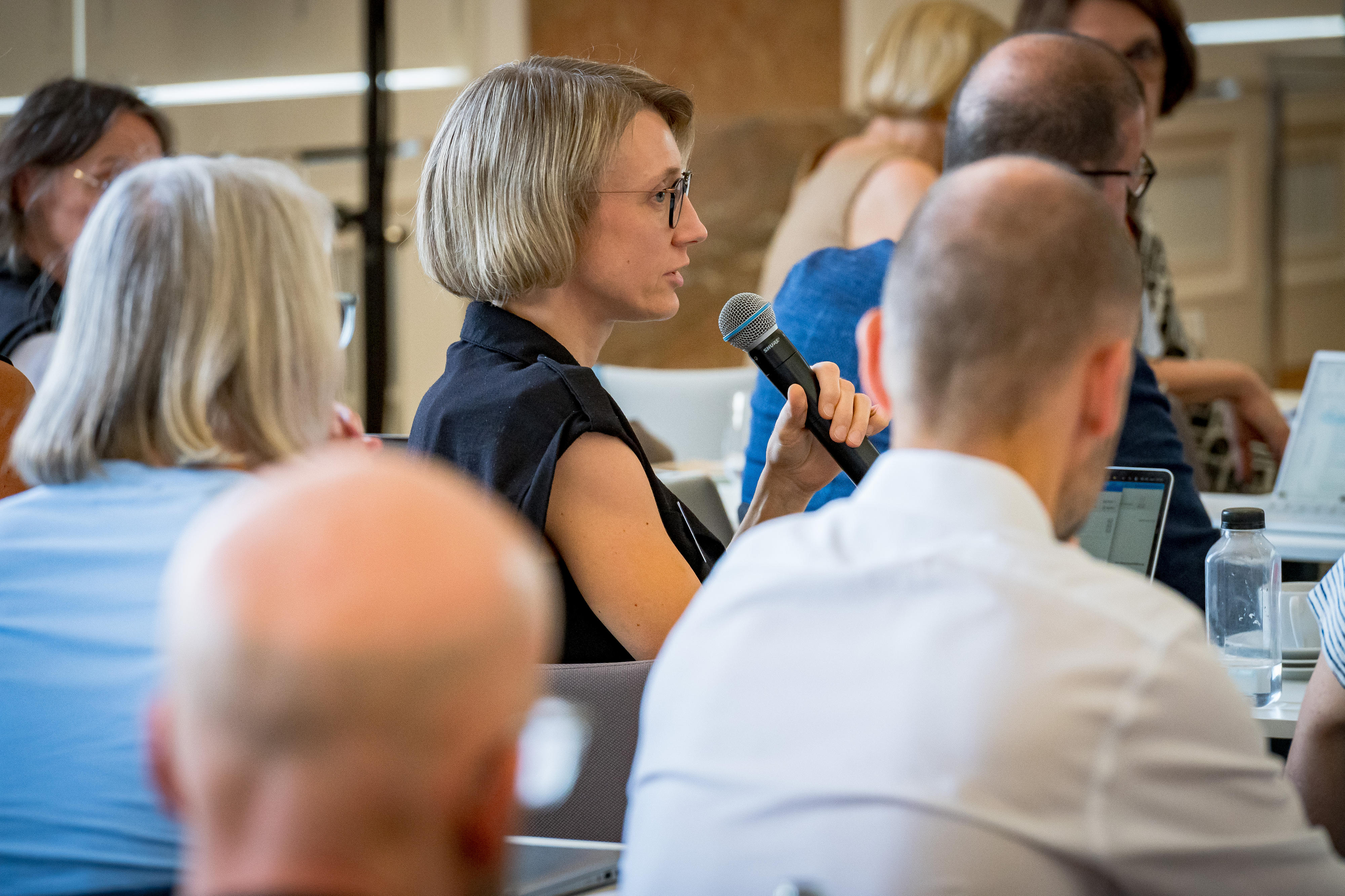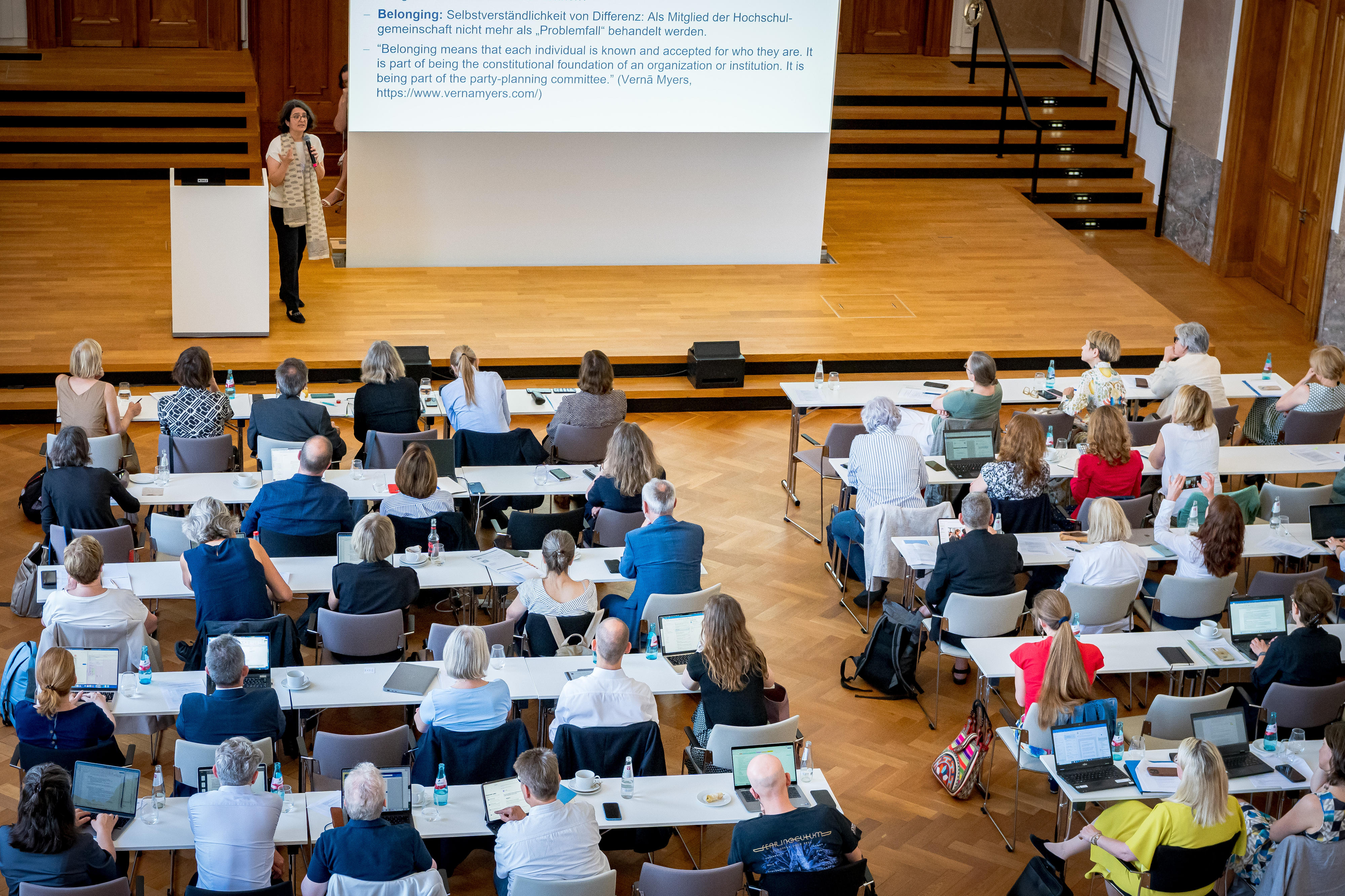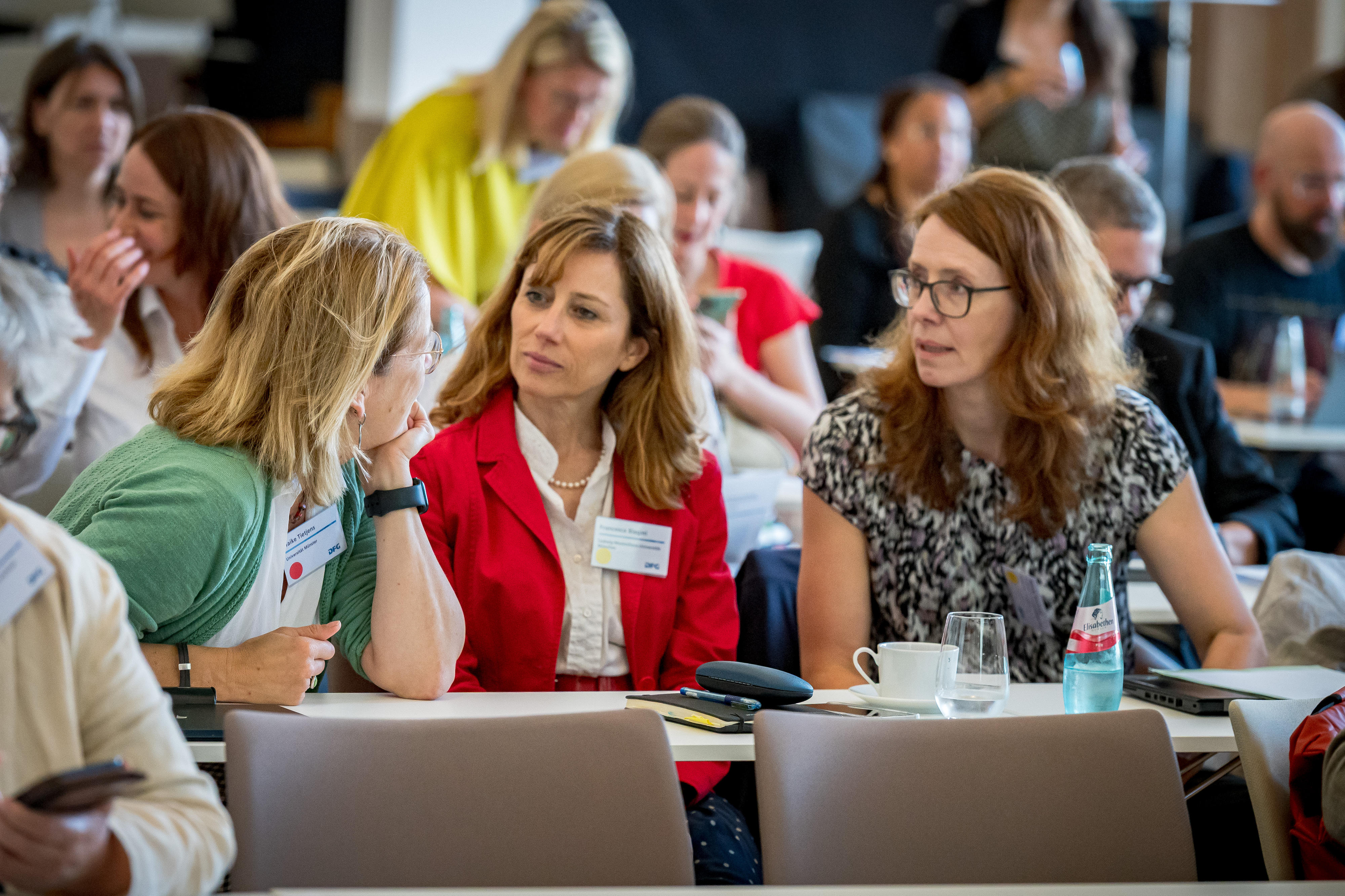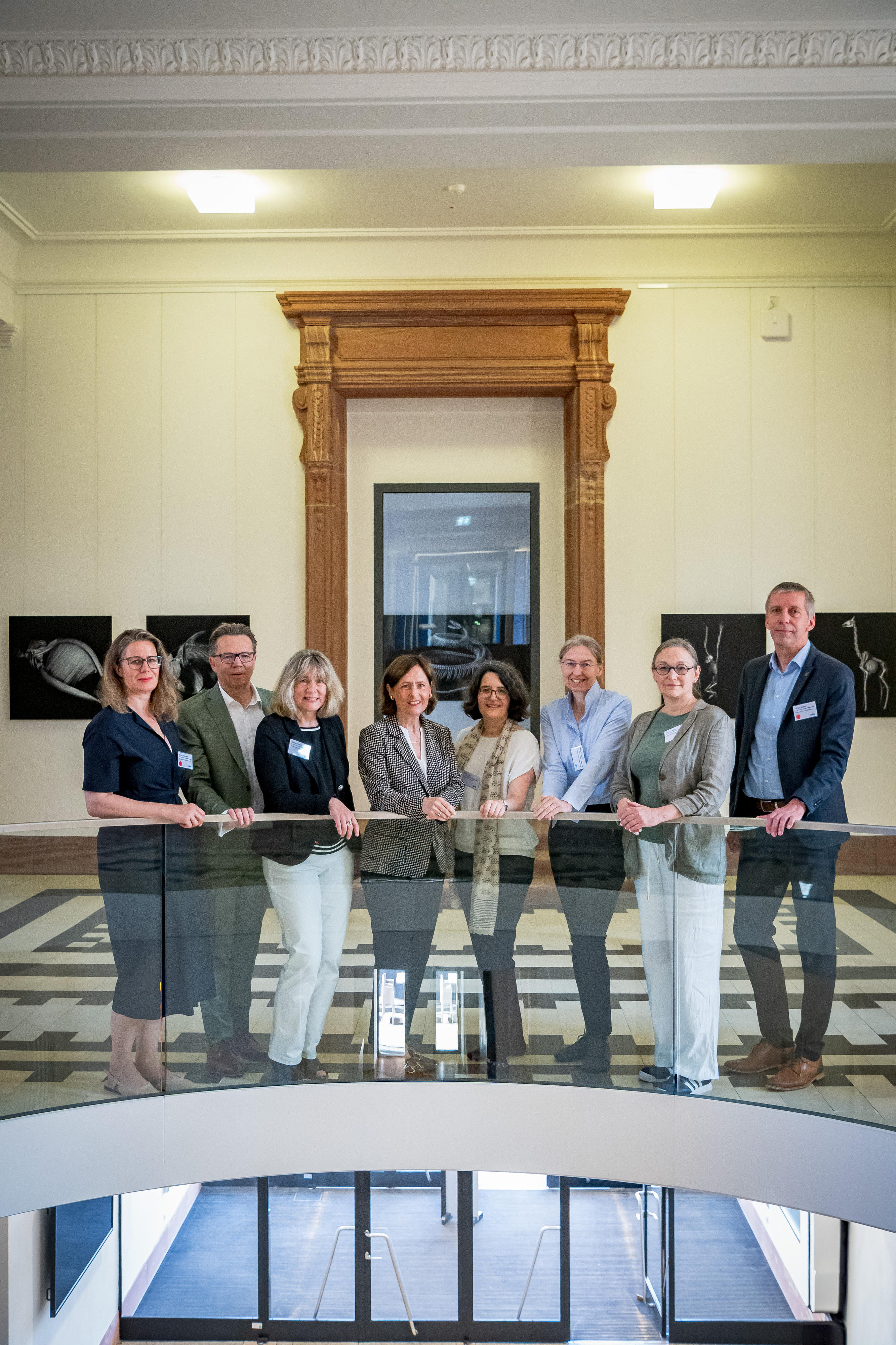Workshop with university leaders on the Research-Oriented Equity and Diversity Standards
Identify, retain and fully realise potential
The DFG expanded its Research-Oriented Equity and Diversity Standards to include the aspect of diversity in 2022. At the end of 2024, the executive boards of DFG member universities submitted integrated reports based on the experience they had gained in the preceding years. At the invitation of the DFG, university leaders gathered on 25 June 2025 for a workshop at the Jügelhaus of the Senckenberg Society for Nature Research in Frankfurt am Main. The aim was to facilitate peer exchange and mutual advice based on the reports that had been submitted.
DFG President Professor Dr. Katja Becker welcomed the participants to the workshop.
© DFG / Schepp
The event was opened by DFG President Professor Dr. Katja Becker. The presidents, rectors, vice-presidents and pro-rectors in attendance engaged in discussion on best-practice examples from their institutions, addressed current challenges, and provided mutual support in a constructive environment.
One key feature of the workshop was a moderated discussion on the intersection of equity and diversity which was led by Gülay Çağlar. A professor of political science with a focus on gender and diversity at FU Berlin, Çağlar started by providing a brief expert introduction to the topic. She explained that the promotion of diversity was still a relatively new field of action for higher education institutions. Dimensions of inequality had often been treated additively to date, she said, but a more integrated approach enabled more effective diversity work. This means building and strengthening suitable structures and embedding diversity measures in existing institutional processes and instruments. Rather than relying on a “one size fits all” approach, said Çağlar , the context of each site had to be considered and priorities clearly defined. All this would take time, she said – time that was necessary in order to identify, retain and fully realise potential.
In the afternoon, participants engaged in intense theme-based discussion in parallel modules. Topics here included resilience in the face of attacks on gender equality initiatives and structures, institutional processes and governance tools for promoting equity and diversity, and academic career pathways.
The workshop concluded with a plenary session summarising key points and offering a preview of the second reporting cycle, which is due to begin with the publication of new guidelines in July 2026.
The event clearly demonstrated the value of in-person dialogue among university leaders. Sharing best-practice examples and discussing present and future challenges in the fields of equity and diversity also proved important as a way of contributing to collective reflection and further development.
- Further information on the composition of the FOGD working group can be found her(interner Link).
- A more detailed report on the FOGD workshop can be found in forschung 1/202(externer Link) (in German only).
